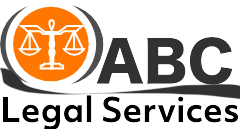In the legal profession, we often see matrimonial disputes that spiral out of control. What may start as minor disagreements can sometimes snowball into major conflicts, ultimately leading couples to seek legal intervention. These disputes, which often seem irreparable by the time they reach the courtroom, usually stem from deeper, long-standing issues. One of the most common underlying causes in these cases is miscommunication or a lack of effective communication between partners.When couples struggle to communicate openly and honestly, misunderstandings take root. Over time, these small missteps in communication can accumulate, creating a wall of resentment and frustration between partners. But here’s the good news: many of these issues can be resolved without reaching the courtroom. Counseling, especially early on, can play a crucial role in mending these communication gaps, allowing couples to rebuild their relationship and avoid the emotional and financial strain that often accompanies legal battles.

Understanding the Role of Communication in Matrimonial Issues
A marriage, much like any relationship, thrives on healthy and clear communication. Whether it’s managing daily tasks, making significant decisions, or navigating emotional challenges, communication is key. When communication breaks down, feelings of misunderstanding, frustration, and emotional distance can take over, leaving both partners feeling unheard and disconnected. These issues may seem small at first but, if left unchecked, can quickly escalate into larger conflicts.
Common Communication Mistakes in Matrimonial Relationships:
Not Expressing Feelings or Needs Clearly:One partner assumes the other knows what they want or how they feel, which leads to unmet expectations. Over time, this assumption becomes a breeding ground for frustration and resentment. For instance, if one partner feels emotionally neglected but doesn’t communicate this, the other partner may have no idea there’s an issue. This creates a rift that grows wider with every misunderstanding.
Interruptions and Defensiveness:Instead of actively listening, partners tend to interrupt or immediately defend themselves, escalating the argument. This defensiveness blocks productive conversation and often results in the argument being about winning, rather than resolving the issue at hand.
Avoiding Sensitive Conversations:In fear of conflict, many couples avoid discussing important issues, allowing these problems to grow over time. Sensitive topics such as finances, family planning, or career decisions may be pushed aside, but avoiding these conversations leads to long-term damage as the problems remain unresolved.
Non-verbal Miscommunication:Communication isn’t just about words; body language and tone play a huge role in how messages are received. A dismissive shrug, an eye-roll, or a sarcastic tone can send the wrong message, even if words are spoken with good intentions. Couples often underestimate how much non-verbal cues affect their conversations, leading to further misunderstandings.
The Legal Impact of Poor Communication
As lawyers, we understand that unresolved communication issues can often lead to legal disputes, including separations, divorce proceedings, and custody battles. Poor communication not only causes emotional distress but can also complicate legal matters. For instance, miscommunication about finances, child-rearing practices, or future goals can lead to disagreements that escalate into legal conflicts. In divorce cases, lack of clear communication can make negotiations over property division or custody arrangements far more contentious than necessary.
However, it’s essential to recognize that not every argument or disagreement requires legal resolution. In fact, many issues can be settled amicably if communication is addressed early. By focusing on open dialogue and clear expression of needs, couples may avoid the courtroom altogether. This is where counseling plays a significant role, offering a proactive approach to resolving conflicts before they reach the legal stage.
How Counseling Can Help: A Path to Resolution
Couples counseling or therapy can be an excellent resource for addressing communication problems before they escalate into larger disputes. Counselors are trained to provide couples with tools to communicate more effectively, which can transform the dynamics of the relationship.
Key Counseling Techniques for Effective Communication:
Active Listening: Encouraging each partner to listen without interrupting, fostering empathy and mutual understanding. Active listening helps both partners feel heard and valued, creating a safe space for expressing emotions.
Clarifying Needs: Teaching couples to express their thoughts and emotions clearly, reducing confusion and unmet expectations. Counselors guide couples in learning how to ask for what they need without feeling ashamed or accusatory.
Conflict Resolution Techniques: Helping couples approach disagreements constructively, rather than defensively. Counselors offer strategies for handling conflict that avoid escalating the situation and keep the focus on finding a solution.
Developing Empathy: Counseling often focuses on helping couples see things from each other’s perspective, increasing empathy and reducing the likelihood of heated arguments. This empathetic approach can break the cycle of blame and criticism that often dominates troubled marriages.
Why Early Intervention is Key
The earlier couples address their communication challenges, the more likely they are to resolve their issues without the need for legal intervention. In many cases, simple misunderstandings can lead to prolonged conflict, causing emotional strain and damage that takes longer to repair. But with the right counseling tools, couples can often rebuild trust and emotional intimacy, avoiding the legal process altogether.
Early intervention doesn’t just save relationships; it also prevents the significant costs associated with legal disputes. Divorce and custody battles can be financially draining and emotionally exhausting. By taking steps to improve communication early on, couples can avoid these burdens and focus on strengthening their relationship.
Conclusion: Addressing Problems Early Can Prevent Legal Disputes
At Advocates Services, we believe in exploring all options before proceeding with litigation. While legal action may sometimes be necessary, we also encourage clients to seek counseling or mediation when appropriate. By addressing communication issues early, many couples can resolve their disputes and avoid the emotional and financial strain of legal proceedings.
If you’re experiencing marital difficulties and would like to explore your options, whether legal or through counseling, feel free to contact us for guidance. We’re here to help you navigate both the legal and personal challenges that matrimonial issues present.
